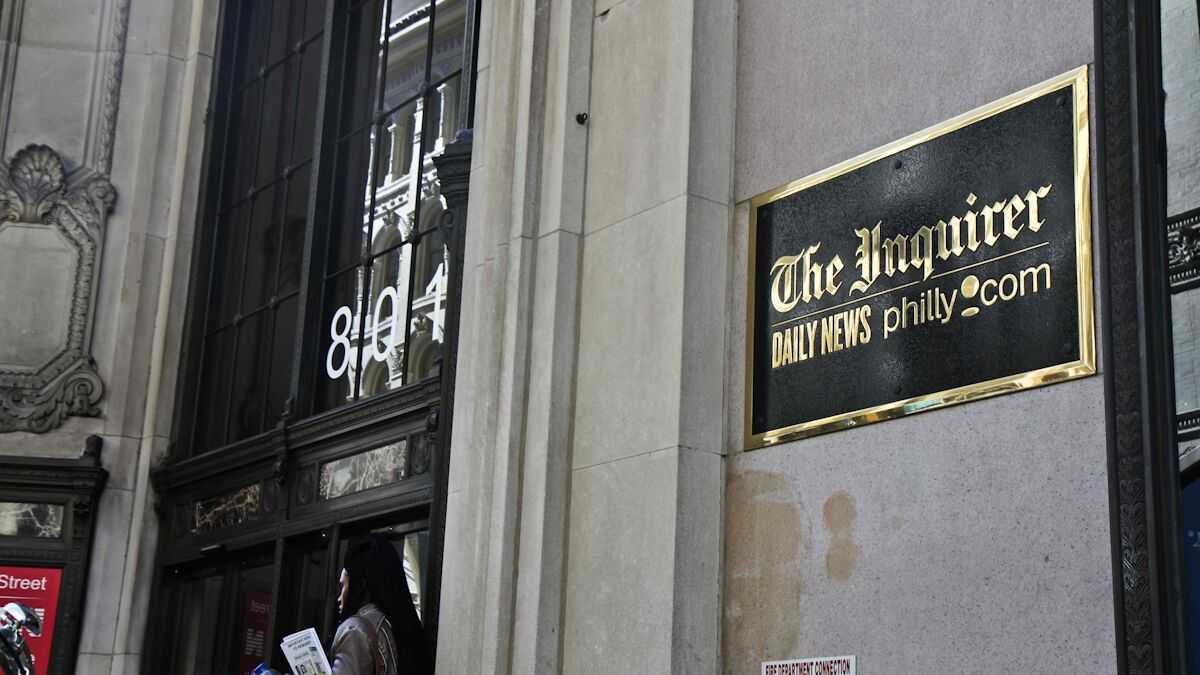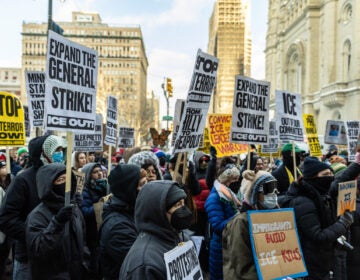Knight Foundation sees promise in Philly news experiment, but worries about money

(Kimberly Paynter/WHYY)
Researchers at the John L. and John S. Knight Foundation, an influential journalism nonprofit, see promise in the recent restructuring of the Philadelphia Media Network, owners of the Philadelphia Inquirer, Daily News and Philly.com.
In January, wealthy philanthropist and sole owner H.F. “Gerry” Lenfest donated PMN to the Institute for Journalism in New Media. The institute is housed under the nonprofit Philadelphia Foundation. That paves the way for the papers and website to seek philanthropic donations to fund their reporting.
A new study entitled “Could it be sunny in Philadelphia?” details the positives and potential pitfalls of this young and experimental arrangement. Overall, it finds it worthwhile as media outlets across the country seek new ways to produce and deliver top-notch content to audiences while staying financially afloat, with PMN being no exception.
“This might create the conditions that allow a local news organization to sustain its work,” said John Sotsky, Knight’s director of strategy and assessment.
The report suggests the new for-profit/nonprofit hybrid could provide some stability to PMN, which has changed hands half a dozen times over the past decade.
Last October, the newsrooms at the Inquirer and Daily News — longstanding competitors — merged. Dozens of layoffs followed.
The study suggests there might be less pressure for turn a big profit under the hybrid design.
PMN will remain a self-governed, for-profit company, and having a positive cash flow will still be critical to its future.
“We need to have a viable business, but we don’t need to have an 18.3 percent margin,” Inquirer editor Bill Marimow told Knight.
Sotksy said that stability would provide a much-needed break from an “ownership carousel” that often comes with institutional changes. With each new group of owners, there’s the potential for a new company focus.
“With that longer trajectory and vision, the organization can make the types of investments and receive support from the institute, which will be making investments in new types of content, digital strategy that organization believes are necessary for it to really grow and thrive and work in the digital age,” said Sotsky.
The study raises questions about funding and stresses the need to avoid conflicts of interest with philanthropic organizations that may support reporting projects.
The institute currently has a $25 million endowment. Lenfest wants to grow that total to $100 million, but how that will happen remains unclear. The study’s author maintains that attracting support for reporting initiatives from organizations that have never supported journalism may be a tricky.
“Generally [foundations] want to put money into things they understand and think they know what will happen,” Feather Houston, senior advisor for journalism and public media for the Wyncote Foundation, told Knight researchers. “This is unchartered territory.”
WHYY is your source for fact-based, in-depth journalism and information. As a nonprofit organization, we rely on financial support from readers like you. Please give today.





